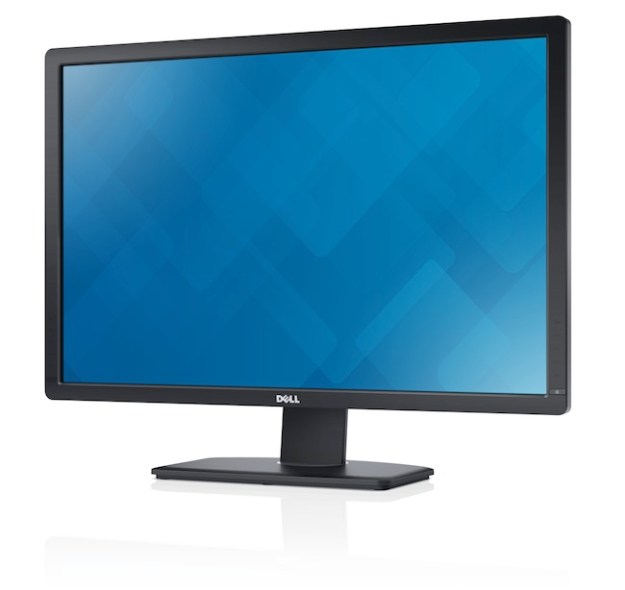
Good news for gamers and other creative professionals who rely on their displays to show top-notch detail (and are unfazed by high price tags). Dell is adding several new UltraSharp monitors to its lineup, including its flagship U3014 30-inch monitor with 2560 x 1600 resolution.
Creative types who need precise color rendering and calibration for their displays should keep their eye out for Dell’s UltraSharp displays with PremierColor, which are available in 30-inch (U3014), 24-inch (U2413) and 27-inch (U2713H) configurations. Since the U3014 (pictured above) is the largest of the three, with an aspect ratio of 16:10 and a 2560 x 1600 pixel resolution, the 30-inch model is ideal for CAD/CAM, gaming, and content creation. But it won’t come cheap: the U3013 will retail for $1,499 when it becomes available worldwide soon, according to Dell.
The 24-inch U2413 and 27-inch U2713H are comparatively more affordable at $599 and $999, respectively, and both are capable of displaying 1.07 billion colors, thanks to their 12-bit internal processor. Both the 24-inch and 27-inch models are available worldwide now.
For people who want to see and do more at their computers – whether it’s devoting one screen to their social media feed and the other to their work, or splitting a photo across two monitors for greater detail – a dual-monitor setup typically requires a computer (and graphics card) that can support two DVI outlets. With Dell’s ultra-wide U2913WM monitor, the 29-inch HD display with a 21:9 aspect ratio gives you the benefit of extra screen real estate without the annoyance of a bezel interrupting the image. Although Dell’s press release did not specify this model’s exact price or availability, it seems B&H is already retailing this monitor for $587.99.
Editors' Recommendations
- Why I’m excited about Dell’s new 120Hz UltraSharp monitors
- Dell’s new 6K UltraSharp refuses to sacrifice pixel density for size
- Dell’s new UltraSharp display comes with a huge top bezel for 4K video calls
- Dell’s UltraSharp 32 HDR takes on Apple’s ProDisplay with 2,000 mini-LED zones
- CES 2020: Dell’s new 4K USB-C monitors look absolutely stunning


